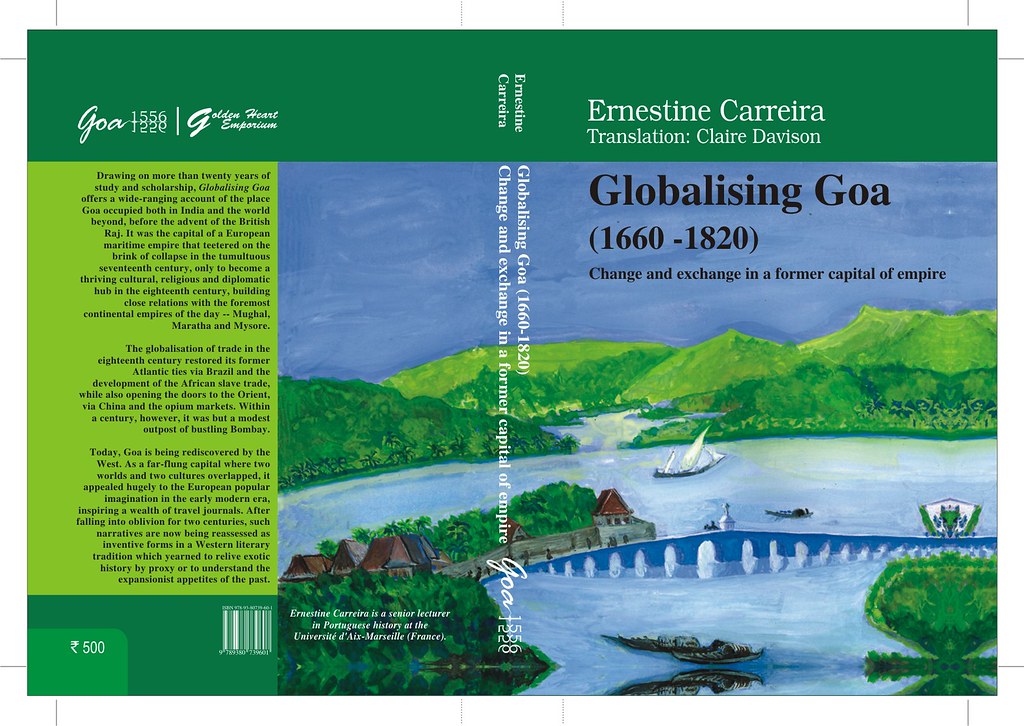Until
January 7, 2017, Cristiano Ronaldo was arguably the most famous Portuguese personality in India. This changed when
Portugal’s current Prime Minister António “Babush” Costa came on a state visit.
The reason for this shift in emphasis was Costa’s supposed‘Indian roots’. On a
visit to boost bilateral ties, inter-governmental cooperation, and Portuguese business
opportunities, Costa’s ‘Indian roots’ received a lot of attention. Costa himself
did not shy away from proclaiming his pride for ‘Indian origins’. Both Costa
and his Indian hosts seemed pleased that he was the first person of
“Indian-origin” to lead a country in Europe. As a symbolic gesture that would
unfailingly win him admirers amongst Indians, Costa displayed his PIO or Person
of Indian Origin card to the audience, during the course of his joint press
statement in New Delhi and his address in Bangalore.
But
to insist and hark repeatedly to Costa’s “Indian-origins” is to commit a
gargantuan historical error. In fact, Costa’s visit to India and his use of
symbolic acts like affirming his Indian roots and displaying his PIO card offers
us the opportunity to deepen our understanding of issues of homecoming and
belonging, especially since the issue of dual citizenship is
heating up. The legal anthropologist
and Herald columnist Jason Keith
Fernandes spoke to a Portuguese news portal and claimed that the notion of “Indian-origin” as
applied to a person like Costa is in fact “quite racist”. It is so as “those
acclaimed as Indians, such as Costa, often do not have Indian origins, that is,
they have no origins as citizens of the Indian state. The term Indian is being
extended to people who have ethnic origins in territories today claimed by the
Indian state”. Fernandes makes a critical distinction between ethnicity, which
is the staple of racial politics, and legal identities. Thus, in Costa’s case,
his father, the writer Orlando Costa, was born a Portuguese citizen in Mozambique
and raised in Margao before 1961. His mother Maria Antónia Palla is Portuguese.
Thus one could argue that Costa is ethnically half Goan and half Portuguese.
To
think of the issue more deeply, it appears that Costa has origins and roots in
multiple locations: in Goa, in Mozambique, and Portugal. He can justifiably claim
to belong to each of these places. Perhaps Costa could do the same things, that
is, similar public celebrations of his ‘local’ identity, in Mozambique as he
did in India/Goa.
When
one thinks of ‘ethnic origin’ and ‘nationality’, the celebration of Costa’s
“Indian-origin” appears to be problematic. With the current laws of citizenship
in place both in India and Portugal ethnicity does not necessarily translate to
nationality, and therefore citizenship. A person born in Goa today
automatically gets Indian citizenship by birth, but if they opt to reclaim
their Portuguese nationality the same person is only entitled to be a PIO. If
one chooses (Indian) ‘ethnic’ origins then one cannot claim (Portuguese)
‘nationality’. Therefore, for a large number of Goans homecoming and belonging
are not necessarily a matter of pride or celebration; it is more of a legal
mess that one has to negotiate.
While
the Indian government is using Costa’s roots to promote economic interests, it
is ignoring other crucial problems that beset people who are Indian nationals.
When Goans demand their right to dual citizenship, given the particular history of Goa, and in order to have greater (and easier) mobility
to access jobs while at the same time stay connected to Goa where they have
roots and ties, the Indian government acts as if this is unimaginable. While
one arm of the Indian government is busy promoting economic interests and
closer ties with Portugal via an ‘Indian’ PM, another arm, i.e. the election
commission, is poised to delete thousands of Goan names from its rosters, thereby forcibly breaking links that Goans have
with Goa. This doesn’t make sense because, like Costa, the many Goans who have
opted to reclaim Portuguese
nationality are socially, economically and emotionally invested in Goa. Like Costa
they still have family here, and they visit Goa as often as possible. And like
Costa they too should be allowed to belong to two or three places. Indeed, as
Fernandes put it,
they are not going from Goa, and India, but only coming back. Their departure
is the result of their being forced out by the Indian state.
While
Costa’s visit may have indeed been a moment of great celebration of Goan
identity – the easy-going Costa surrounded by throngs of adoring admirers in
the streets of Panjim and Margao was a sight to behold – it also exposes the
fragility of this Goan identity, sandwiched between an Indian order that erases
its history, and a global order that seeks to curtail human migration as much
as possible. In both instances the rights of Goans (either as dual citizens or
not) get severely underrepresented and unrecognized.
Goan identity loses when it comes to the promotion of large-scale business interests. What this means is that the average hard-working Goan loses out. In a racist and indifferent world, the contribution of the Goan migrant is deemed to offer states and global orders nothing in particular. This is surprising as the remittances of the Goan migrant, one of the highest in the country, keeps (and kept) the Goan economy afloat and contributed foreign exchange to the coffers of India. To not accept Goans and their history, while celebrating Costa and his history, is to treat them as disposable commodities. Costa’s visit needs to be remembered for precisely this reason.
(First published in O Heraldo, dt: 1 February, 2017)





